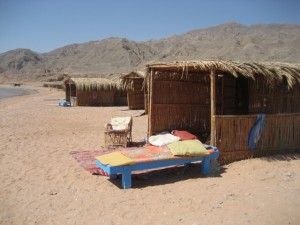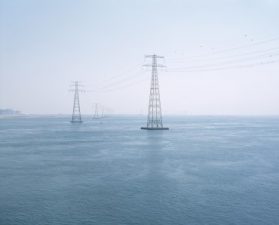 Just weeks into 2009, at least three Middle Eastern governments have made commitments to increase the green-ness of their energy supplies.
Just weeks into 2009, at least three Middle Eastern governments have made commitments to increase the green-ness of their energy supplies.
Last week, Cairo has committed that renewables will supply 20 percent of Egypt‘s electricity needs by 2020, Israel says solar power will provide 10 % and Abu Dhabi says 7% of its total power needs will come from renewable supplies by the same date.
Egyptian Minister of Electricity and Energy Hassan Younes told this week’s World Future Energy Summit that “Wind farms clustered in the Saidi area of Egypt will employ thousands and produce 20 percent of the country’s diversified energy needs by 2020.”
If Egypt comes anywhere close to accomplishing this bold target, it may well be the Middle East’s leader in adopting renewable energy sources. Younes’ comments came as he was a guest on a new CNBC Arabiya TV show entitled Bil Akhdar (‘Green Business’) which is to broadcast Sunday evenings on the Arabic business news network.
Meanwhile Abu Dhabi, which hosted the second annual World Future Energy Summit from 19-21 January also committed to upping its green power capacity. During the summit Abu Dhabi’s official WAM News Agency announced that “renewable energy sources will make up at least seven percent of [Abu Dhabi’s] total energy production capacity by 2020 .”
Currently it’s reported that the emirate sources none of its power needs from renewables, but Conergy’s Stefan Muller told AFP that the goal is readily achievable and that the Arab Gulf states have the natural resources to “produce all their day-time energy needs from solar power.”
Despite Abu Dhabi being the world’s fifth largest oil exporter, it is helping to push the United Arabi Emirates towards some serious greening with projects such as the planned zero-emissions Masdar city.
Israel‘s Socio-Economic Cabinet, headed by Finance Minister Roni Bar-On, passed a plan in the third week of January to have 5% of the country’s electricity needs met by renewables by 2014 and 10% by 2020. Israeli National Infrastructure Minister Benjamin Ben-Eliezer’s plan calls for the southern Negev and Arava desert regions to be the ‘National Preference’ regions for new energy plants.
In accordance with the plan, both photovoltaic and solar-thermal power plants are under construction in Ashalim. The Israeli decision this past week comes as the discovery natural gas field capable of supplying some 15 years worth of Israeli energy needs has been announced.




3 thoughts on “Israel, Egypt & Abu Dhabi All Set Renewable Energy Goals”
Comments are closed.